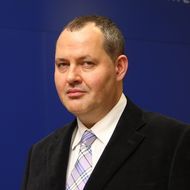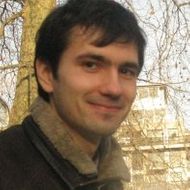- A
- A
- A
- ABC
- ABC
- ABC
- А
- А
- А
- А
- А
-
Departments
- Departments
-
Institutes and Centres
-
- Institute of Economics and Utility Regulation
- Institute for Industrial and Market Studies
- Centre for Labour Market Studies
- International Centre of Decision Choice and Analysis
- Centre of Development Institute
- Centre for Financial Research & Data Analytics
- Economic Statistics Centre of Excellence
- Anti-Corruption Centre
-
-
Laboratories
-
- International Laboratory for Macroeconomic Analysis
- International Laboratory of Stochastic Analysis and its Applications
- International Laboratory for Experimental and Behavioural Economics
- Corporate Finance Center
- Laboratory for Banking Studies
- Laboratory for Labour Market Studies
- Laboratory for Sport Studies
- Laboratory for Wealth Measurement
- Project Laboratory for Development of Intellectual Competitions in Economics
- Laboratory for Spatial Econometric Modeling of Socio-Economic Processes in Russia
- Laboratory for Geometric Algebra and Applications
-
- Department of Financial Market Infrastructure
- ICEF
-
Educational Programmes
- Bachelor's Programmes
-
Master's Programmes
-
- Economics and Economic Policy
- Agrarian Economics
- Stochastic Modeling in Economics and Finance (Previously, Master's in Statistical Modelling and Actuarial Science)
- Statistical Analysis in Economics
- Economic Analysis (Online)
- Strategic Corporate Finance
- Financial Markets and Institutions
- Corporate Finance
- Financial Engineering
- Master of Business Analytics (Online)
- Investments in Financial Markets (Online)
-
- Doctoral Programmes
-
Faculty
109028, Moscow,
11 Pokrovsky Boulevard,
Room Т-614
Phone: (495) 628-83-68
email: fes@hse.ru
Founded in 1992, the HSE Faculty of Economics is the university’s oldest faculty. In the years since it was founded, it has gained a reputation as Russia’s leader in terms of higher economic education.
A fundamental education in modern economic theory and mathematics is combined with the study of applied disciplines, such as taxation, budget policies and processes, financial management and other related fields.
In press
Karminsky A. M., Столбов М. И.
Springer Publishing Company, 2024.
Journal of Corporate Finance Research. 2024. No. 3. P. 26-37.
Sinyavskaya O., Pishnyak A., Cherviakova A. A. et al.
In bk.: Inclusive education in the Russian Federation: Scoping International and Local Relevance. Springer, 2024. P. 139-167.
Andreyanov P., Krasikov I., Suzdaltsev A.
arxiv.org. Theoretical Economics. Cornell University, 2024
Tag "research projects" – News









- About
- About
- Key Figures & Facts
- Sustainability at HSE University
- Faculties & Departments
- International Partnerships
- Faculty & Staff
- HSE Buildings
- Public Enquiries
- Studies
- Admissions
- Programme Catalogue
- Undergraduate
- Graduate
- Exchange Programmes
- Summer Schools
- Semester in Moscow
- Business Internship
-
https://elearning.hse.ru/en/mooc/
Massive Open Online Courses
-
https://www.hse.ru/en/visual/
HSE Site for the Visually Impaired
-
http://5top100.com/
Russian Academic Excellence Project 5-100
- © HSE University 1993–2024 Contacts Copyright Privacy Policy Site Map
- Edit





